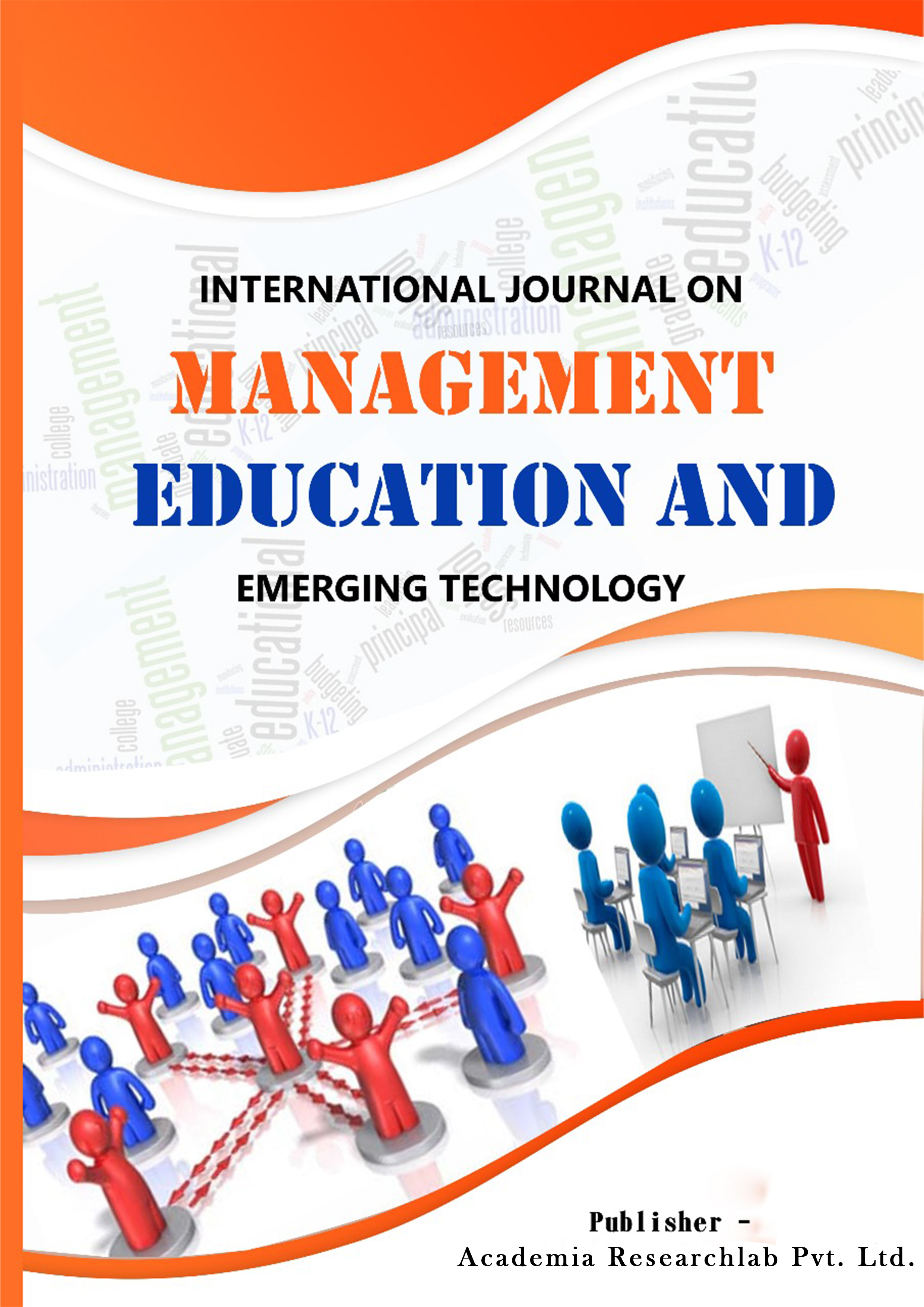Voices Of Solo-Parents Teachers In The Division Of Kabankalan City Amidst Stress
Keywords:
Solo Parents' Teacher, Teacher Stress, Coping Strategies, Work-related Stressors, Cooperation, Compromise, Work-Life Balance, Solo Parent Welfare Act, Mixed Method ResearchAbstract
This study aimed to determine the profile of the solo parent-teachers, their level of stress, their coping strategies, and the significant difference in the level of stress with their profile. An explanatory sequential mixed method was the methodology used in this study. An adapted questionnaire was used to gather the quantitative data among the 30 purposively sampled identified solo parent-teachers from the Division of Kabankalan City, Negros Occidental, who served as the participants of the study, and it was followed up by a focused group discussion. The findings show that stress at work was the main cause, while the impact on the emotional and behavioral sphere was considerably low, which might indicate a proclivity towards the internalization of stress. Moreover, a majority of the women were the participants, and their marital status was either separated or widowed. They were mostly in lower teaching positions and which indicates the limited upward mobility in their careers and the increase in their caregiving duties. Cooperation and compromise, among the coping strategies, were the most used, while the employment of assertive tactics like verbal confrontation and aggression was at a low level, which shows a strong inclination towards non-confrontational ways of dealing with the matter that are influenced by the cultural norms. Besides that, the study revealed the absence of differences in the degree of stress concerning sex, civil status, teaching position, or number of children, meaning that stress is likely to stem from systemic and professional pressures rather than from demographic variables. It is then recommended that support from institutions, like flexible work arrangements, mental health programs, assertiveness training, and policy alignment with the Solo Parent Welfare Act. The actions of these wellness of solo parent-teachers enable them to manage their double duties efficiently.
References
[1] Aguila, E., & Mapa, D. (2017). The impact of solo parenting on Filipino women: Socioeconomic and emotional perspectives. Philippine Journal of Social Sciences, 44(2), 67–80.
[2] Alvarez, A. N., & Villena, C. A. (2020). Lived experiences of solo parent teachers: Challenges and coping mechanisms. International Journal of Educational Management and Development Studies, 1(1), 1–15. https://doi.org/10.53378/345678
[3] Barajas, M. (2012). Academic achievement of children in single parent homes: A critical review. Retrieved from https://rb.gy/xzuair
[4] Carr, A. (2014). Worried sick: How stress hurts us and how to bounce back. Rutgers University Press.
[5] McGowan, J. (2006). Positive and negative affective outcomes of occupational stress. New Zealand Journal of Psychology, 35(2).
[6] De Torres, R. M., & Dimarucut, J. J. (2021). Coping strategies of solo parents in public service: A qualitative study. Philippine Journal of Social Development, 13(2), 45–58.
[7] Delos Reyes, F. C. (2019). Coping with solo parenting: A study of working mothers in Mindanao. Asian Journal of Social Science and Humanities, 6(2), 55–64.
[8] Etikan, I., Musa, S. A., & Alkassim, R. S. (2016). Comparison of convenience sampling and purposive sampling. American Journal of Theoretical and Applied Statistics, 5(1), 1–4. https://doi.org/10.11648/j.ajtas.20160501.11
[9] Fimian, M. J. (1988). The development of an instrument to measure occupational stress in teachers: The Teacher Stress Inventory. Journal of Occupational Psychology, 57(4), 277–293.
[10] Fokkens-Bruinsma, M., & Canrinus, E. T. (2014). Motivation for becoming a teacher and engagement with the profession: Evidence from different contexts. International Journal of Educational Research, 65, 65–74.
[11] Garcia, M., & Paredes, L. (2019). Career progression challenges of solo parent teachers in public schools. Journal of Educational Research, 12(3), 112–124.
[12] Herman, K. C., Hickmon-Rosa, J., & Reinke, W. M. (2018). Empirically derived profiles of teacher stress, burnout, self-efficacy, and coping and associated student outcomes. Journal of Positive Behavior Interventions, 20(2), 90–100. https://doi.org/10.1177/1098300717732066
[13] Kyriacou, C. (2015). Teacher stress: Directions for future research. Educational Review, 67(1), 1–12. https://doi.org/10.1080/00131911.2013.837103
[14] Lazarus, R. S., & Folkman, S. (1984). Stress, appraisal, and coping. Springer Publishing Company.
[15] MacIntyre, P. D., Gregersen, T., & Mercer, S. (2020). Language teachers’ coping strategies during the COVID-19 conversion to online teaching. System, 94, 102352. https://doi.org/10.1016/j.system.2020.102352
[16] Mendez, J. M., & Cruz, R. A. (2017). Psychological well-being of widowed solo parents: Implications for guidance programs. Philippine Journal of Psychology, 50(1), 90–105.
[17] Pestaño, S. O. (2008). Coping mechanisms of working mothers [Unpublished undergraduate thesis]. University of the Philippines.
[18] Romero, M. C., Garcia, J. L., & De Guzman, L. M. (2022). Stress and parenting among single mothers in the Philippine context. Asian Journal of Social Sciences & Humanities, 11(1), 45–56.
[19] Torres, A., & Mendoza, S. (2020). Family size and solo parenting: Managing resources and stress. Journal of Family and Social Welfare, 15(1), 21–34.
[20] Yazon, A. D., & Buenviaje, L. M. (2018). Work stress and coping strategies of public school teachers. Asia Pacific Journal of Multidisciplinary Research, 6(1), 1–7.
[21] Yu, X., Wang, P., Zhai, X., Dai, H., & Yang, Q. (2021). The role of work stress and coping strategies in predicting burnout among Chinese school teachers. Current Psychology, 40(8), 3879–3887. https://doi.org/10.1007/s12144-019-00344-6
[22] Zhou, Y., Liu, M., & Chen, H. (2020). Job stress and burnout in teachers: The mediating role of coping styles. Psychology Research and Behavior Management, 13, 1013–1022. https://doi.org/10.2147/PRBM.S276684
Additional Files
Published
How to Cite
Issue
Section
License
Copyright (c) 2025 International Journal on Management Education and Emerging Technology(IJMEET)

This work is licensed under a Creative Commons Attribution-NonCommercial-NoDerivatives 4.0 International License.





